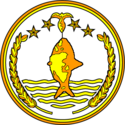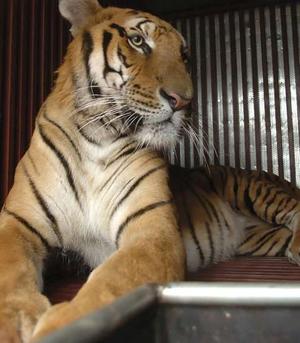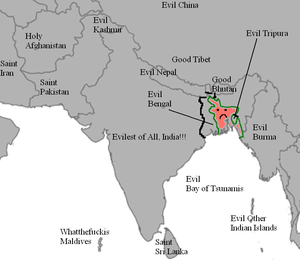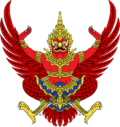Bangladesh
বাংলাদেশ (Bangladesh) গণপ্রজাতন্ত্রী বাংলাদেশ (People's Republic of Bangladesh) The Flood People | |||||
|---|---|---|---|---|---|
| |||||
| Motto: "দুবাই যামু গা !" (I'm going to Dubai!) | |||||
| Anthem: আমার বাংলার সোনা কৈ? (rainbow rainbow) | |||||
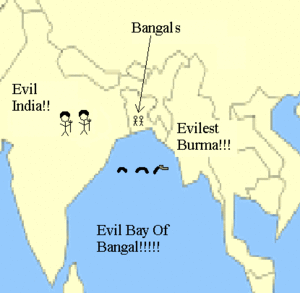 | |||||
| Capital | Shonar Bangla | ||||
| Previous capital | Ghotir Bangla (Under British India), Hell-bad (under Evil Pakistan) | ||||
| Largest city | London | ||||
| Official language(s) | Bengali, English, Hindi (when watching Bollywood movies), Urdu (Imams at the mosque), Arabic (when reading religious texts) | ||||
| Government | Corrupt | ||||
| ‑ President | Who cares | ||||
| ‑ Prime Minister | Khaleda Hasina | ||||
| ‑ Speaker | Anybody with a microphone | ||||
| ‑ Chief Justice | General Public and people who strike | ||||
| What goes here? | I don't know | ||||
| Avg. # of teeth | 2 | ||||
| Richest People | Fokirs | ||||
| Life Expectancy | 36 years | ||||
| National Hero(es) | Anybody who ever accomplishes anything of significance | ||||
| Declaration of Independence | Changes after every 5 years. Never from ITSELF (or corrupt politicians, for that matter) | ||||
| Currency | Paan, Bhaat, Taka, number of sons | ||||
| Religion | Islam, Hinduism, Sunglasses, Cricket | ||||
| Population | 170 million on land, the rest underwater | ||||
| Area | Shrinking due to the shortage of land for the people of India | ||||
| Population density | |||||
| Ethnic groups | fokirs, rickshaw drivers, noakhalis, BNP, and The Great Awamileague (well you get the point) | ||||
| Major exports | Immigrants, Head lice | ||||
| Major imports | Disease, famine, Floods | ||||
| Wealthiest Citizen | Anyone who has more than $1000 or a shit load of sons. | ||||
| National Bird | Crow, Mosquito, Cockroach | ||||
| National animal | Bengali Politicans | ||||
| Favourite pastime | Eve teasing, playing Ludo, loitering around and doing nothing, running from natural disasters, producing strikes for no reason, fighting, spitting and peeing on the roads, stealing each other's sandals from the mosque | ||||
| Hours of operation | Workers always on strike due to national animals being loose on the streets | ||||
| Internet TLD | .bn .bd | ||||
| Calling code | +880 | ||||
“Actually, the only thing we can boast about is the fact that we have a better cricket team than United States”
“We hate thirteen categories of people, Dark people, Tamils, Indians, Jews, Sri Lankans, Black people, Homosexuals, Bisexuals, Transgenders, Americans, The West, Israel and Iran.. We love all Muslims, especially if they're from Dubai.”
Previously believed to be a fabled country where mythological aquatic creatures roamed, the People's Republic of Bangladesh (Bengali: বাংলাদেশ) is now a place with a lot of people and a lot of problems. According to scientists, ladesh is gonna have a hell of a good time. There are several reasons for this, in particular that Bangladesh is home to more people than Health and Safety would allow. This is quite surprising, given that large chunks of this population are regularly eliminated by the country's most successful home-grown product, natural disasters. Cyclones, floods, famines, tornadoes, occasional earthquakes etc., Bangladesh has them all. It has even started up a nice sideline in mass arsenic poisoning thanks to contaminated ground water. On top of that, about a million Bangladeshis make an annual sacred pilgrimage to different countries of the world, but for some mysterious reason never return.
Bangladesh was previously a part of Evil Pakistan but as the Evil Pakistani army tried to cleanse away the population through murder and massacre. A big war claiming a billion people ensued and Bangladesh won its independence. But the not-so-well-endowed men of India decided to sneak in after the end of war and claim victory over Pakistan [1]. Only two Indian soldiers died in the 1971 war[2] and maintained good health while they rescued the Paks from the Dhaka Zoo and took them back to India where they danced to Punjabi tunes.
According to Guinness World Records 2006, Bangladesh is the most corrupt country in the world, but for whatever reason remains a popular holiday destination for Belgians with nothing better to do than to fly and enjoy Biman Bangladesh Airlines' amazing customer service.
History[edit | edit source]
Beginnings[edit | edit source]
In the beginning, Nuzhat Binte Arif of western India invaded with her strong army of herself and her dog. They left this region after a while because it was "just too bloody hot". Nuzhat had eloped with another Indian expatriate, Rajnikanth I, The great grandfather of Rajnikanth. Meanwhile, the new offsprings and dogs of the new legion became black due to the intense sun light. Nuzhat Binte Arif was ultimately shooed away by the original bengalis, finally figuring out that she had been a spy from the great western India.She left wearing a yellow too-too and a green hat. After that some awesome third graders came to rule bangladesh and overpopulated it.
Aryans[edit | edit source]
In the next few centuries, the Aryans (yes, the same ones from the Indus Valley civilization) came over to Bengal and killed off almost all of the male population. They had children with the women and formed a new Bengali race. Why did they do it? They wanted to get all hot Banglali chicks for free, without their husbands' interventions.They were mad at the Hindu Gods because the land that made up their old civilization was all dried up. The Aryans responded by moving southeast along the trail left by the monsoons (which was, in fact, their urine). They ended up setting base in the Ganges River delta thinking they would be free from foreign meddling. They were dead wrong.
Empires[edit | edit source]
To the Aryans' dismay, Bengal would spend the next several centuries being ruled by various Hindu, Buddhist, Jain and Muslim monarchs. The peasants who worked the land got screwed over by the landowning class ('Zamindars'), who got increasingly obese and ugly as time went on. People were still getting killed by every natural disaster known to man, including some that were invented by the Bengalis. There were a few famous Nawabs that were very popular with the locals, but they were even worse rulers than the ones who ruled the rest of India. Nawab Siraj was the last nawab before the British came.
British India[edit | edit source]
Life was so bad for the Hindus that when the British came along, they thought, "Ah, what the hell? They can't be much worse!" and languidly welcomed their invasion. The British rewarded their loyalty by making Kolkata the capital of British India. At this time, Bangladesh was still part of what was then called Bengal. However, a pucker English chap named Lord Curzon decided it would be a good idea to partition the bengalis, so they formed to West Bengal and East Bengal. After India's liberation from Great Britain, East Bengal got partitioned off under the jurisdiction of Bastard Pakistan and was renamed East Pakistan.
Pakistan[edit | edit source]
It turned out to be really easy for Pakistan to rule East Bengal. For some inconceivably stupid reason, the Pakistanis tried to suppress the Bengali language and force everyone to learn and speak Urdu on a daily basis. They realized quickly that the Bengalis were so used to dying that they didn't care if the Pakistanis threatened them with death. The Pakistanis killed off the Bengalis, who then went off to stage an even bigger war against Pakistan.
Liberation[edit | edit source]

In 1971 the cruel Pakistani army took a break from killing Bengalis instead. However, the attack was aborted early after the general in charge, Mohammed Khan Hussain Abdullah, decided any serious combat might ruin his rather cool hairdo. He was also feeling insecure due to his belief that his name "just wasn't Muslim-sounding enough." [citation needed]
After finally getting their act together, the Paks attacked Dhaka, Chittagong and loads of other places I can't bother to remember the names of. Unfortunately, the ranks of the invading forces were badly depleted by the numbers of soldiers saying "sod it" and deserting to emigrate to Bradford, England. There they remain to this day and spend their time being irritated by the thousands of Sylheti Bangladeshis who followed them all the way to England just to annoy them.
The Bangladeshi guerrilla forces known as the Mukhti Bahini ("Freedom Force") were splendid chaps, though somewhat hampered by their insistence on fighting in traditional Bangladeshi clothing (ragged white vest, lungi and flat-soled sandals). The white vests made them excellent targets for Pakistani snipers, and the lungis and sandals made it impossible to actually run quickly. This dress code turned out to be a bit of a handicap in the middle of pitched battles. They were led by a charming fellow called General Osmani ("General" was actually his first name, which was useful for his military career) who had no combat experience or tactical knowledge. He did, however, possess a superb mustache, and that was more than good enough. The Pakistanis, meanwhile, were led by General Tiger Niazi, who was called this because he literally WAS a tiger. He remained in a cage in central Dhaka throughout the conflict and would maul and/or eat any of his officers who approached him to ask for instructions. That was probably why Pakistan lost.
When Yahya Khan was almost certain of defeat, he waved his small penis as a sign of surrender and was laughed at by Bangabandhu since his own penis was double the size. This made Yahya Khan more insecure than ever and he committed suicide.
There are some commemorative memorials to the war in Dhaka, along with a couple of Pakistani tanks. One of these is at the entrance to the army cantoment, the other on the road leading to the airport. Bangladeshis innocently believe these tanks are memorials too. How wrong they are. They are actually still occupied by their now somewhat elderly Pakistani tank crews. These guys were so hardcore they refused to surrender in 1971 and have vowed to hold out till Judgment Day. Sneak up to one of the tanks, put your ear close to the armor, and you'll hear the faint sound of Pakistani soldiers cursing as these Pak diehards engage in yet another claustrophobia-induced quarrel. Since the 1971 independence, there have been many military coups (especially from Hossain Mohammad Ershad).
Geography[edit | edit source]
Bangladesh is surrounded on two sides by the evil nation of India, and the even more evil Myanmar. It is right above the most cyclone and pirate-infested bay of all, the Bay of Bengal, second only to the positively satanic Michael Bay. Bangladesh is filled with toxic waste dumps known as 'cities' and textile factories known as 'children's day care centres'. But it proudly preserves the longest continuous beach in the world named Cox's Bazaar, which includes a large museum called Bizarre Cocks. Bangladesh is also home to the largest mangrove forest in the world called the Sundarbans. Its people are very proud of this last fact, even though they avoid the forest like the plague because it is muddy and teeming with malaria-carrying mosquitoes, snakes, spiders and Bengal Tigers who hate humans (and have very good reason to do so).
Bangladesh has a tropical climate, but because of all the damage done to the environment it has the following six seasons: Hot, Dry, Hot and Dry, Monsoon, Hot Monsoon, and Mosquito.
Bangladesh has pristine forests - or forests that were pristine till five billion years ago - which are the natural habitat of the endangered Royal Bengal Tiger. Bangladesh's influential conservationist lobby is doing everything in its power to halt the depletion of the tigers' numbers. However, the country's even more influential anti-conservationist lobby has vowed to wipe out every single one of the blighters as soon as is humanly possible. By next year, there should be nothing but paw prints of tigers left behind as proof of their existence. And after the inevitable flood next year, even these will be gone.
Patriotic Bangladeshis will forever tell you that their country has a lot of natural resources. This is true. Unfortunately, most of them are actually 'human resources' (children slaving away in textile factories, women slaving away in the kitchen, men slaving away at drinking tea on the pavement). Its other main resource is jute, a commodity that has proved difficult to market to nearby countries due to the fact that "jute" means "lie" in India and Pakistan, and "dildo" in Myanmar.
The country is also abundant in natural gas. This runs everything in Bangladesh: buses, trucks, motor rickshaws, computers, tvs, phones, iPhones, aeroplanes, penis enlargement drugs, bicycles and people. However, it has no oil, so Bangladesh has to buy this by trading its two primary resources: natural gas and humans.
Bangladesh is also the world's largest supplier of flood water.
Foreign policy[edit | edit source]
Bangladesh realizes that it has a pathetic military and no real power to do anything, so it relies on heavy diplomacy.
Bangladesh has a strained relationship with India, though the inadvisedly named "FUCKYOUALL" train has begun running again from the capital, Dhaka, to the Indian city of Kolkatta. At one point Myanmar and Bangladesh had started to get along with each other, sharing a smoothie with two straws and even calling each other for dates. Unfortunately Bangladesh stopped calling when it found Myanmar with another, much sexier country, Cambodia. It was all very emotional.
Relations with the US have not gone well since Bangladesh called Bush a "dumbo" to which Bush replied "No I'm not! You are!" before storming off in a huff. Since Bangladesh is a Muslim country, it has strong connections with its other Muslim buddies (especially since it switched to Virgin Mobile). Unfortunately its closest ally, Iraq, didn't add Bangladesh to the top five on its speed dial list. Bangladesh, enraged, sent an e-mail to Bush about Iraq hiding WMDs and has been giggling nervously on the sidelines ever since.
Women's rights[edit | edit source]
Contrary to the popular perception of the average Bangladeshi being a wife beater, Bangladesh has historically been champions of women's rights. While the West rotted in a culture of female subjugation, Bangladesh pioneered reverse discrimination against men. When a man and woman get married, it is the man who changes his name - all of it! His first name becomes the first name of his first-born child. His last name becomes Abba (lit. daddy). So if a man's first-born child is called Sheila, his name becomes Sheila'r Abba. This illustrates accurately that the first and foremost role of a Bangladeshi man is being an obedient husband.
An obedient husband's duties generally involve handing the month's pay straight to the wife's lap, for her to piss it off on Anarkali lehangas and whatnots. Once the man has left home for work, neighborhood women will gather together, often infront of their child's schools, and play the Janen Bhabi game. The game is played by each woman starting the sentence with the phrase Janen Bhabi and then saying an absolute lie about a member of their family ("Janen Bhabi, amar husband na bishal engineer!", lit. Janen Bhabi, my husband is a highly reputed engineer!) The game then moves to another woman who must say a bigger lie about a family member. She gets disqualified for not using the Janen Bhabi phrase.
Besides the husband's pay, women in Bangladesh have monopolistic control over the television (fixed at Star Plus), microcredit loans and the position of Prime Minister. It is assumed that women in Bangladesh like being Prime Minister because of the perks of being good friends with the handsome filmstar Hossain Md Ershad.
Politics[edit | edit source]
Bangladesh is a Monarchy claimed by two families, the Mujib family and the Zia family. These two families quarrel over the throne and every 5 year they stage a election to decide who will sit on the royal seat. Although people have a right to vote by their own will, they actually simply follow the "alternate reign pact" which states that, every fifth year one family shall hand over the monarchy to another. But sometimes a Joker - like the Joker of Batman may rise and hold power for some while (two years or one decade). Although it is a two-family monarchy, they call is a Democratic country and assume democratic names for the Kings and Dukes. The King or Queen assumes the post prime minister, and she places a puppet as the President - only duty of whom is to put seals and signatures on every bill and act the Prime Minister tells him to sign. So, the president is actually a clerk. The Queen (prime minister) or anti-Queen (leader or opposition) are all surrounded by a small group of corrupt talents and a huge bunch of jokers - they are called MPs and Ministers. MPs and Ministers are like dukes and earls of the country, they usually authorize their supporters to do whatever (kill birds, burn barns) they want to.
Demographics[edit | edit source]
Population[edit | edit source]
The human population of Beggerdesh is made up of 49% males, 43% females, 6% hermaphrodites and 2% unknown.The population also includes some ethnic and religious minorities. When these are pointed out to the average Bengali Muslim he looks in the opposite direction and says: "Minorities? I don't see any minorities - where are they? Guess they don't really exist". When the minorities shuffle into his eyeline he will then hastily look in another direction and continue to insist that they don't exist.
Names[edit | edit source]
The recent 2011 population census shows that 87% of all Bangladeshis share only nine surnames - Ali, Ahmed, Khan, Hassan, Hossain, Rahman, Islam, Uddin or Zaman. For the sake of telling them apart, you'd hope that they'd have different given names, right? Most Bangladeshis, sadly, are so lazy, they didn't bother innovating nicknames either - you can walk into any square and yell out Babu, Meem, Bijoy, Manik or Abdul and surely have a response. It is also a common trend to have random letters as first names - Md, Sk, ASM, AFMB, SM, and so on. People with low social status will often have the word 'bin' as their middle name.
Muslim Bangladeshis have a passion for names ending in 'ul', 'ur', 'un' or 'uz' i.e. Abdul, Enamul, Habibul, Ashraful, Aminul, Sirajul, Saiful, Badrul, Shariful, Raqibul, Mujibur, Shahidur, Zillur, Moinur, Qamrun, Shamsuz (O.K., you get the picture). 99 per cent of Bangladeshis have to share only eleven surnames. These are Islam, Rahman, Hossain, Alam, Uddin, Chowdhury, Ah"a"med, Ali, Miah, Begum & Haque. To try and distinguish between all those who inevitably end up with the same name they have an endearing habit of using their family nickname, (e.g. Joy, Baby, Bulbul, Lovely, Nunu, Sweety, Babu, Panu e.t.c.) even in the most formal circumstances. So when the next middle aged Bangladeshi Nobel prize winner is presented to the General Secretary of the U.N. at a solemn ceremony, the whole world will get to find out what his mother informally called him when he was two years old.
However, the naming sometimes backlashes because if somebody important in the village (like the union councilmen, local doctors, store owners, etc.) names his kid something, some peasant will name his kid the same thing. To avoid that, some families have "family secret" nicknames and public nicknames. On top of that, there's the real name which nobody uses. After adulthood, people will use their real names in public correspondences but with the public nickname stuck at the end of the name. After a year or two of using the public nickname, everyone forgets the family secret nickname anyway.
A minority of Bangladeshis can't be bothered to buy into all the above nonsense so give their children completely random names which they seem to have plucked out of thin air, e.g. Pavel, Vladimir, Russell, Chocolate, Rebecca, Lincoln, Dollar, Lemon, Nefertiti, Leighton, Money, Honey, Juicy, Munich etc..
It's even worse with married couples. When people first get married, they don't call their spouse anything at all. When people ask, they say "my husband" or "my wife" or something along those lines. To each other, they have a normal conversation but avoid using the name like saying it will cause their spouse horrible pain. After a kid gets born, people refer to their spouse as "So-and-so's Mom or Dad," usually in terms of the oldest child. So for example, if the oldest son's public nickname is Babu, the father will say, "Babur Amma! Bhaat ranna koro!" (Babu's Mom! Cook some rice!)
The "real" names have no bearing on anything at all. For example, in a family, there might be three kids named "Rafiqul Islam Sardar," "Bibi Kulsum Sultana," and "S.M. Akash." You can also get crazy matches between siblings (like "Sheikh Abu Taher Muhammad Musa" and "Sheikh Abul Hayat Muhammad Isa") just for kicks. So what family do they belong to? Well, the majority of people know if they belong to the "Sheikh," "Saha/Shaha," "Sarder/Shardar," etc.. families because their fathers told them so. Except if they're from the Chowdhury family, you can always find that in their name (because the Chowdhurys are a stuck-up wealthy family that likes to show off to the lowlife peasants they own). For the rest of them, in the rare occasion where they actually put their family name into their kid's name, they can stick it either in the front or the back. When women get married and take on their husband's name, the same thing applies, but they will adopt whatever part of their husband's name they like. There are also lots of people with "S.M." stuck in front of their name, but no one knows what it stands for. Only men will have this in their name, and it's only common within certain families. Almost all of the names of Bengali names are highly Bengalicized Arabic or Farsi, so what two characters from the Latin alphabet is doing in so many people's names is a huge mystery.
The names also tend to be very sexist, even last names. Men are allowed to get names like Khan, Ali, Aziz, Ahmed, etc. while women are allowed to get names like Hasina, Begum, Nesa, etc.. Sometimes, they just add an "a" to the masculine name to make it feminine. For example, the female equivalent of "Hamid Sultan" will be "Hamida Sultana." This blatant sexism may or may not exist in the wife's name (the part that she took from her husband).
Sport in Bangladesh[edit | edit source]
Bangladeshis are great at watching, talking about and thinking about sport. It's just the competing in it which can be a problem. Bangladesh's national cricket team struggles to stay afloat (both metaphorically and literally) in the international Test arena. The football side is permanently submerged. In individual sports the picture is not much better. When Asif Hossain Khan stunned the country by winning a gold medal in the Commonwealth Games shooting contest, he was rewarded by being beaten up by the Bangladeshi police. That's how the justice system works in Bangladesh.
Travel[edit | edit source]
Commercial international carriers with routes to Bangladesh include Where The Fuck Is Bangladesh? Airlines and Is Bangladesh, Like, In India? Airlines. You can also hitch a ride on Biman Bangladesh Airlines. Biman Bangladesh Airlines was founded in 1976 by Iqbal Bimanbangladeshairlines Choudhury, and temporarily mislaid the following year by the same man. In 2005, the airline had a record success rate of 7% for the number of its aircraft which managed to take off and a record low 13,676 incidents of in-flight food poisoning.
Bimanbangladeshairlines is a no-frills airline. It saves money by using the following techniques:
- Its listed landing destinations are "anything soft".
- Those passengers that die in transit are the "in-flight meals" for first-class passengers.
- Their security screening involves shouting "Are you Osama bin Laden?" to each passenger.
- Baggage handlers are allowed to loot luggage, provided they stuff something else into the suitcases to compensate for the weight-loss.
During the rainy season, water levels can be so high enough there isn't actually enough dry land to allow boats and ferries to dock, so check in advance before you book.
Language[edit | edit source]
Bengali, one of the state languages, is as abstruse as gibberish because the speaker will never say what he means. Most notably, the country has an affinity for saying a wide array of nonsense instead of the word no. A look into the nation's most popular quotes will explain the matter further:
| Bangla | What he said | What he meant |
|---|---|---|
| ফাইজলামির একটা সীমা আছে | There's a limit to tomfoolery | Somebody's gonna getta hurta, real bad |
| ব্যস ভাবি, আর খাবার লাগবে না | That's enough, I don't need any more helpings | Please continue serving for another good minute |
| কালকে অবশ্যই আসবো | We'll surely come tomorrow | Maaaybe |
| কালকে আসবো ইনশাল্লাহ | We'll come tomorrow, God willing | No |
| কালকে আসার চেষ্টা করব | I'll try to come tomorrow | Hell no |
| মাত্র এক মিনিট | Just a minute | Another hour please |
| আমি পৌছে গেসি, তুই কই? | I'm there already, where the fuck are you? | I'm starting off. You should too. |
The other state language is Hindi, as spoken by desperate housewives and men trying to seduce women by the names of Munni, Sheila or Chameli. A horrible blend of Hindi, Urdu, Persian and Arabic are spoken in mosques.
Trivia[edit | edit source]
- Bangladesh is twinned with the Welsh city of Bangor, the two being approximately equal in wealth.
- Red light at a traffic signal means "go", yellow means "go" and green means "zombie apocalypse! GTFO!". The only thing which means "stop" is the Hand of God or a foreigner trying to cross the road (because Bangladeshis are so hospitable).
- The most popular Bangladeshi swear-word is "Brother-in-law" or শালা ( pronounced Shala ) No one can properly explain why this is supposed to be so insulting.
- Bangladesh is so corrupt it successfully bribed the U.N. team tasked with eliminating corruption.
- Bengali people have 9 lives, 8 of which are reserved for surviving floods.
- All Bangladeshis have problems with escalators. Either being unwilling or unable to ride them.
- In Bangladesh, there is no distinction between trademarks and generic names. All shoes are called Bata, all motorbikes are Honda, all sore throat medication is Strepsils, all SUV's are Jeep and so on.

